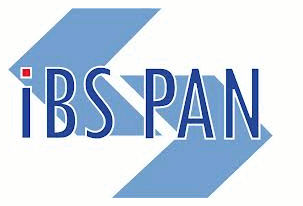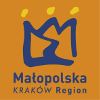Local Information
1. Information about Krakow
Kraków (Polish pronunciation: [ˈkrakuf]) also Cracow, or Krakow (English /ˈkrækaʊ/), is the second largest and one of the oldest cities in Poland. Situated on the Vistula River (Polish: Wisła) in the Lesser Poland region (Polish: Małopolska), the city dates back to the 7th century.
Kraków has traditionally been one of the leading centres of Polish academic, cultural, and artistic life and is one of Poland's most important economic hubs. It was the capital of Poland from 1038 to 1569.
The city has grown from a Stone Age settlement to Poland's second most important city. It began as a hamlet on the Wawel Hill and was already being reported as a busy trading centre of the Slavonic Europe in 965. With the establishment of new universities and cultural venues, at the emergence of the Second Polish Republic in 1918, and throughout the 20th century, Kraków reaffirmed its role as a major national academic and artistic centre.
See more information here and here.
Most important addresses and telephones in Krakow can be found here
2. The weather
The climate has four seasons- spring, summer, autumn and winter. Poland has a moderate climate with both maritime and continental elements. This is due to humid Atlantic air which collides over its territory with dry air from the Eurasian interior. As a result, the weather tends to be capricious and the seasons may look quite different in consecutive years. This is particularly true for winters, which are either wet, of the oceanic type, or - less often – sunny and cold, of the continental type. Generally, in North and West Poland the climate is predominantly maritime, with gentle, humid winters and cool, rainy summers, while the Eastern part of the country has distinctly continental climate with harsh winters and hotter, drier summers.
3. Currency
The złoty (pronounced [ˈzwɔtɨ] sign: zł; code: PLN), which literally means "golden", is the currency of Poland. The modern złoty is subdivided into 100 groszy (singular: grosz, alternative plural forms: grosze; groszy). The recognized English form of the word is zloty, plural zloty or zlotys. The currency sign zł, is composed of Polish small letters z and ł (latin small letter L with stroke).
- 1 EUR is worth about 4 PLN
- 1 USD is worth about 3 PLN
Present value of Polish złoty you can check here.
4. Visa Application Support Letters
Citizens of a large number of countries do not need a visa to enter Poland. Detailed list of such countries can be found here.
Letters supporting application for a Polish Visa will be issued only for authors of accepted papers who have registered and paid the conference fee. This rule is a strict one, and no exceptions will be made. If you are an author of an accepted paper and need a letter to support your Polish visa application, please contact us here.
Please also find below the link regarding the information how to obtain Polish visa: http://www.msz.gov.pl/en/travel_to_poland/visa/
Please find below the link to the list of Polish Embassies – search: http://bazateleadresowa.poland.gov.pl/
5. Accommodation in Krakow
Information about recommended hotels will be provided after completing negotiations.
6. Useful links regarding travel, accommodation, entertainment etc.
- Transport in Poland: http://en.e-podroznik.pl/
- Transport in Krakow: http://www.mpk.krakow.pl/en/prices-of-tickets/
- Useful website/mobile app to plan the journey in Krakow: http://krakow.jakdojade.pl/?locale=en
Taxi with special price for FedCIS will be provided closer to the conference date
All information about Krakow (entertainment, travelling, events):
7. Places worth seeing in Krakow:
- Wawel Royal Castle: http://www.wawel.krakow.pl/en/
- Nationam Museum in Krakow: http://www.muzeum.krakow.pl/
- Jewish Kazimierz: http://www.kazimierz.zaprasza.net/
- Tourist routes: http://cracow.travel/guide-to-krakow/tourist-routes/
- Places to go: http://cracow.travel/places-to-go/
8. Places worth seeing in Poland
Places nearby Krakow:
- Auschwitz-Birkenau Memorial and Museum: http://www.auschwitz.org.pl/
- Salt Mine Wieliczka: http://www.kopalnia.pl/
- Ojców National Park: http://www.ojcow.pl/
- Royal Castle in Niepołomice: http://www.muzeum.niepolomice.pl/
Other cities:
- Warsaw: http://www.kulturalna.warszawa.pl/
- Zakopane: http://www.zakopane.pl/
- Zamość: http://www.zamosc.pl/
- Wrocław: http://www.wroclaw.pl/
- Poznań: http://www.poznan.pl/
- Gdańsk: http://www.en.gdansk.gda.pl/
- Szczecin: http://www.szczecin.eu/en
9. Useful expressions in Polish
POZDROWIENIA - GREETINGS
- Dzień dobry - Good day, Good morning (universal greeting)
- Witam – Welcome
- Dobry wieczór - Good evening
- Do widzenia - Good bye
- Dobranoc - Good night
- Do zobaczenia – See you soon (a bit informal)
- Hej/Cześć – Hi/Bye (informal)
- Na razie - See you (informal)
- Pa pa – bye bye (informal)
- Smacznego! - Bon appetite!
- Na zdrowie - Cheers! To your health!
INTRODUCING
- Jestem Tomek - I am Tomek (My name is Tomek)
- Jak się masz? - How are you?
- Jak się macie? - How are you? (more people)
- Jak masz na imię? - What is your name?
- Dokąd idziesz? - Where are you going?
- Pan - sir, Mr
- Pani – madam, Mrs, Miss
- Państwo - a group of people to whom you refer with respect
- ja - I
- ty - you
- Pan, Pani - you (politely referring to a man /woman)
- on, ona, to - he, she, it
- my - we
- wy - you (referring to more persons)
- Państwo - you (politely referring to more persons)
- oni – they
UNDERSTANDING
- Nie rozumiem. - I do not understand.
- Rozumiem tylko trochę. - I understand just a bit.
- Słucham? - Pardon?
- Pan (Pani) mówi za szybko. - You speak too quickly.
- Proszę powtórzyć. - Repeat, please.
- Proszę powoli. – Slowly, please.
- Jeszcze raz. - One more time.
- Trochę - a bit
- ..., wiesz? - you know?
- Nie znam polskiego, mówię tylko po angielsku - I do not know Polish, I can speak only
- English.
- Tak - Yes
- Nie - No
- Co to jest? - What is it?
- Ile to kosztuje? - How much is it?
- Dziękuję (bardzo) - Thank you (very much)
- Proszę – Please/Here you are
- Przepraszam - Excuse me/Sorry
- Kawę czy herbatę? - Coffee or tea?
- Dwa piwa - Two beers
NUMBERS
- Jeden - 1
- Dwa - 2
- Trzy - 3
- Cztery - 4
- Pięć - 5
- Sześć - 6
- Siedem - 7
- Osiem - 8
- Dziewięć - 9
- Dziesięć - 10
TRAVEL
- Dokąd jedziesz? - Where are you going?
- Autokarem? Pociągiem? Samolotem? Na piechotę? - By coach? By train? By plane? On foot?
- Kiedy masz pociąg (samolot) do Krakowa? - When is your train (plane) to Krakow?
- Muszę się przesiadać - I have to change (trains).
ACCOMMODATION
- Gdzie mieszkasz? - Where are you staying? Where do you live?
- Mieszkam w hotelu/u znajomych - I am staying at a hotel/at my friends’ place.
- Szukamy zakwaterowania. - We are looking for accommodation.
- Szukam tanich noclegów - I am looking for a cheep lodging.
SHOPPING
- Zapraszamy - Welcome/We invite you (a typical inscription on Polish shops)
- Lubię zakupy - I love shopping.
- Nie lubię zakupów - I dislike shopping.
- Jest za drogo - It is too expensive.
- Chcę coś tańszego - I want something cheaper.
- Kupię to - I will buy this.
- W czym mogę pomóc? - May I help you?
FOOD
- Smacznego! - Bon appetit!
- Czy może Pan (Pani) coś polecić? - Is there something you can recommend?
- Dania mięsne / Dania bez mięsa - Meat dishes / Dishes without meat
- przystawka, zupy, sałatka, sos, desery - starter, soups, salad, sauce, desserts
- wołowina, wieprzowina, kurczak, indyk, jagnięcina, ryba - beef, pork, chicken, turkey, lamb, fish
- ryż, ziemniaki, makaron, frytki, kluski - rice, potatoes, pasta, chips, dumplings
- Smakowało? - Did you enjoy it? Did it taste well?
- Rachunek poproszę – The bill, please.
BAR
- Na zdrowie! - Cheers! (To your health)
- Sto lat! - May (s)he live one hundred years!
- Jeszcze jedno duże (małe) piwo - One more big (small) glass of beer.
- Dziękuję, nie palę - Thanks, I do not smoke.








